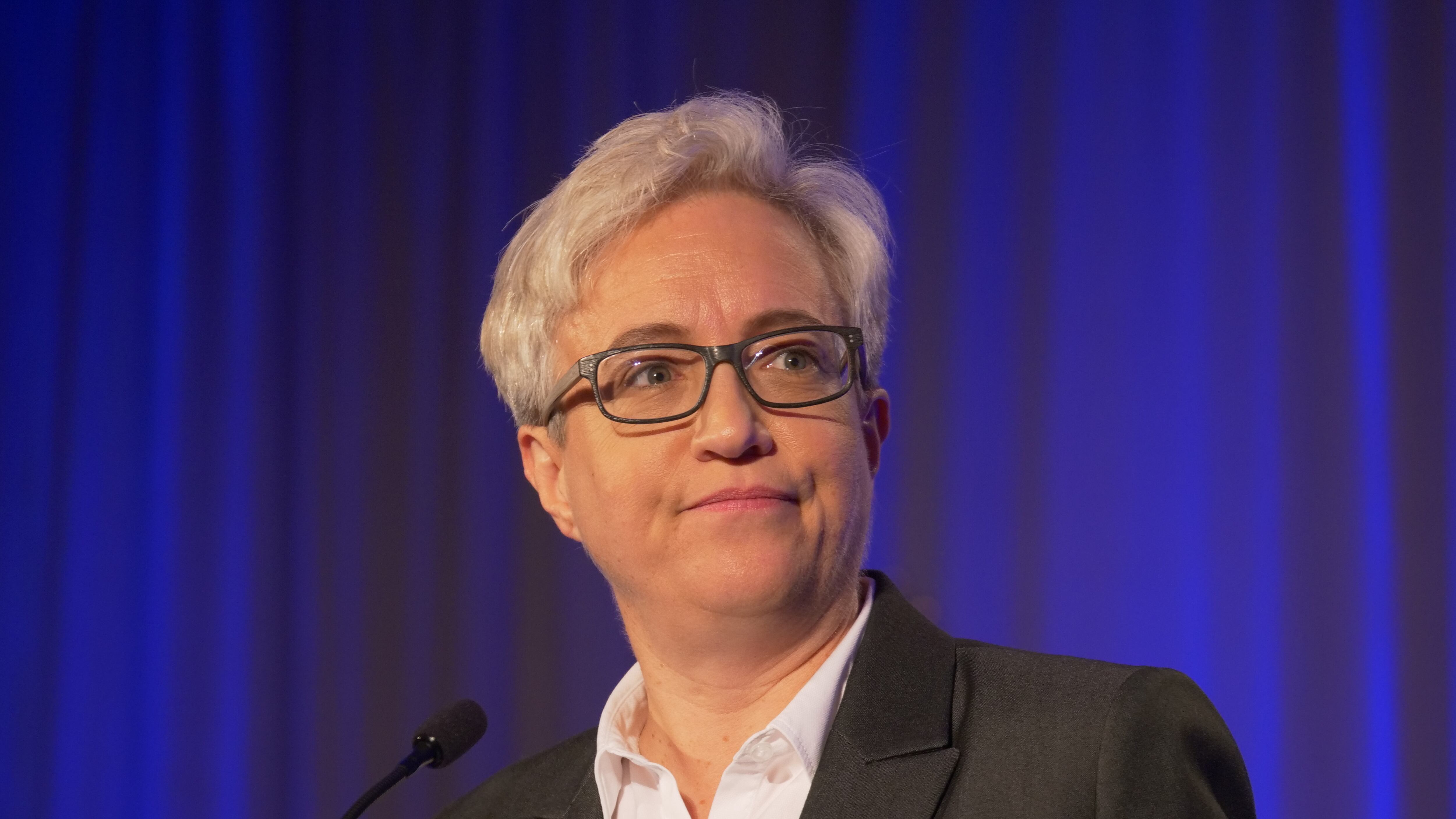A large crowd of nervous Democrats watched the first tallies of ballots in a state of collective anxiety this evening at the Hyatt Regency at the Oregon Convention Center.
Forty miles away in Silverton, Republicans clustered around an optimistic Christine Drazan, who hopes to be the first Republican woman ever elected governor in Oregon.
Early returns with just over a million ballots counted showed Democrat Tina Kotek with a narrow 1-point lead—45.5% to 44.5%—over Drazan. The unaffiliated candidate Betsy Johnson stood a distant third, with 9.2% of the vote.
Kotek’s lead is contrary to the normal pattern in statewide races, in which strong Republican candidates often open an early lead, which has then disappeared as late votes in Portland and the Willamette Valley come in. It’s especially noteworthy given that pre-Election Day ballot returns in Multnomah County were historically low.
The crowd at Drazan’s party held fast at 10 pm as the race remained close.
Men in cowboy hats and trucker caps, and at least one woman in a fur, snacked on yellow and green Oregon Ducks-colored popcorn and sipped “Blazin’ Drazans” and “Christines” from a cocktail truck parked at the Oregon Garden’s main hall.
“Oh, yes, it’s Drazan’s night, and the feeling’s right,” the Audrey Aiken Band sang.
Cheers went up when Portland City Commissioner Jo Ann Hardesty appeared to be losing her race to newcomer Rene Gonzalez and when Republican Herschel Walker pulled ahead of Democrat Raphael Warnock in the closely watched Georgia U.S. Senate race.
Maria Garcia, a restaurant owner from Happy Valley and a registered Democrat originally from Mexico, said she supported Drazan because Portland has gotten out of control with crime and homelessness.
“Things I’ve seen in Portland I’ve never seen in Mexico City,” Garcia said.

Oregon hasn’t elected a Republican governor since 1982, and regardless of the final outcome, this contest will be one for the history books. It’s the first time that both major-party nominees have been women, and the race has also featured the unusual candidacy of Johnson, the former longtime state senator from Scappoose, who quit the Legislature and the Democratic Party to launch an unaffiliated candidacy.
As Election Day approached, Johnson’s poll numbers faded from the high teens to closer to 10%, and the always-tight contest between Drazan, the former House minority leader from Canby, and Kotek, the former House speaker from Portland, seemed to tilt slightly in Kotek’s favor.
In a contest that focused heavily on crime and homelessness, Kotek struggled to separate herself from the woman she hopes to succeed, Gov. Kate Brown, who polling has shown is the least popular governor in the country. Meanwhile, Drazan, whose legislative career lasted less than two terms, benefited from having a far shorter voting record than Kotek’s and belonging to the party that has long been out of power and so cannot easily be blamed for Oregon’s struggles.
Johnson hoped to harness discontent and the heavily Democratic electorate’s disdain for Donald Trump’s party to find a middle ground and win the race with a plurality. Early polling showed she might have a path, but when Kotek and Drazan finished their primary races in May and began hitting Johnson in June, Johnson’s hopes of becoming only the second unaffiliated governor in Oregon history receded.
By election night, the only remaining question was whether Johnson would play a spoiler’s role in the race.
At the Hyatt, Kotek finally took the stage at 11 pm, leading Drazan by 1.5 points. After a few dance steps and several rounds of thanks, Kotek spoke only briefly, telling the crowd that the race would not be decided election night.
“We might be waiting awhile before things are official,” Kotek said. “The race is too close to call tonight.”
In Silverton, Drazan ended her evening with a similar message. “We knew this was going to be a close race,” she told her supporters. “Oregonians have spoken, and we are waiting.”


